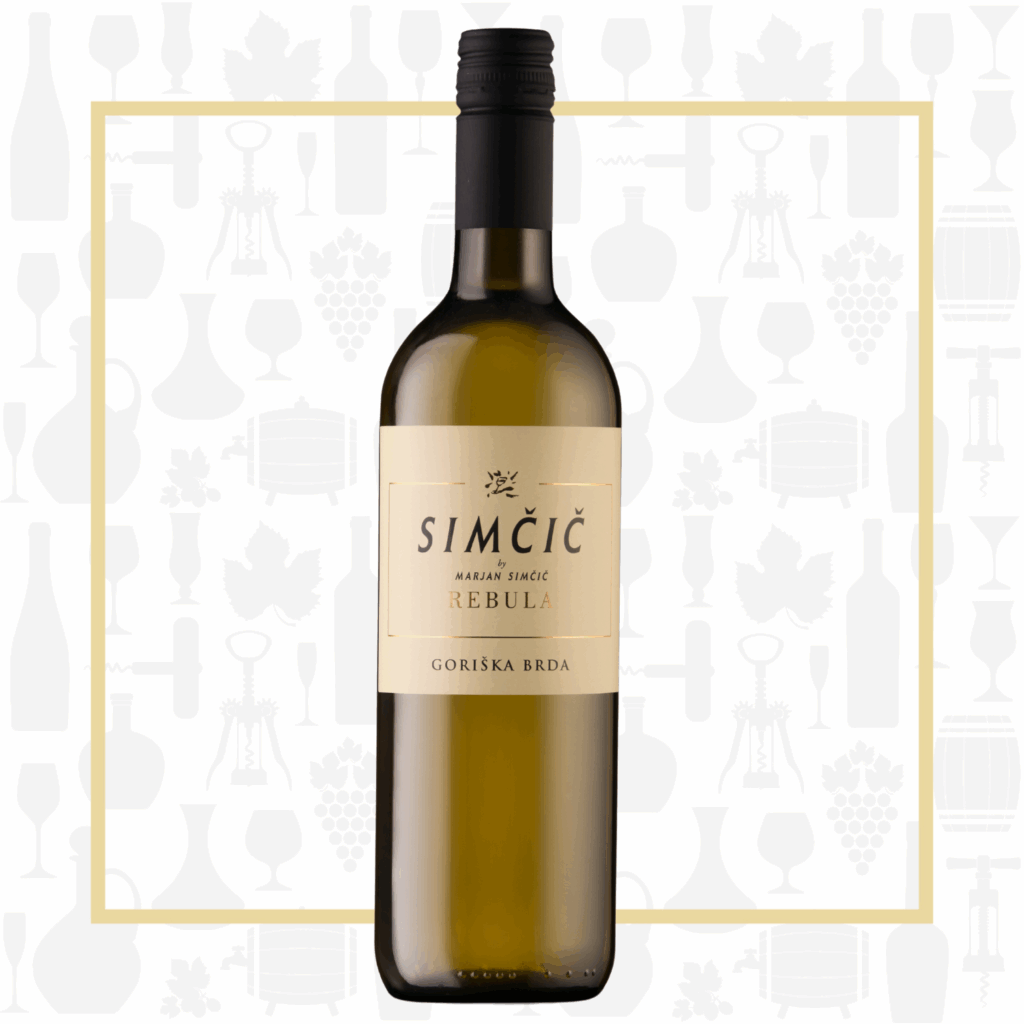Producer: Simčič
Region: Goriska Brda
Country: Slovenia
Variety: Rebula
Bottle Size: 750 ml
Alcohol: 13%
Soil: marl, slate, and sandstone (Opoka)
Farming Practices: Sustainable, using biodynamic methods
CELLAR PROFILE
In 1860, Jozef Simčič bought a farm near the village of Medena and planted vineyards. Five generations later, Marjan Simčič has become an icon in the industry, crafting internationally renowned wines as well as consulting with dozens of wineries. He uses biodynamic methods and regenerative agriculture, taking great care to work in symbiosis with the native fauna and flora. The old vine vineyards are rooted in the region’s singular Opoka soil. Steeply-sloped and terraced, they are planted to the indigenous Rebula as well as to French varieties that have been grown in the region for centuries (Sauvignon Blanc, Sauvignon Vert, Chardonnay, Cabernet Sauvignon, Merlot and Pinot Gris). The cool mountain evenings and climactic conditions ensure that the wines stay fresh and have great acidity to go along with the intense minerality of the terroir. Winemaking is done traditionally, using ambient temperature to control the spontaneous fermentations. Care is undertaken to ensure any wines aged in oak are topped up regularly to minimize oxidation, Wines are left on their lees for some time to garner complexity and mouth feel.
REGION
Simčič is located near the village of Medena, within Brda, in the Littoral wine region of western Slovenia. Bordering the Gorizia Hills DOC of Friuli-Venezia Giulia in northeastern Italy, Brda acts like a pocket between the sub alpine hills and the Friuli plain. It was one of the first wine growing regions in Slovenia to make a concentrated attempt at establishing an international reputation for quality. The climate here is continental, with a Mediterranean influence.
VINEYARD
Grapes are sourced from the Medena and Jordana vineyards of the Simčič Estate, as well as from the vineyards of Klet Brda, a winery partner in this product line. The vines are between 7 and 33 years old. All are planted in the region’s Opoka soils, at altitudes between 200 and 250 masl, and are sustainably farmed using biodynamic methods.
WINEMAKING
Fully ripe grapes were hand-harvested in September and brought cool to the winery, where they were de-stemmed, crushed and fermented in stainless steel. The slow, cool fermentation is initiated using native yeasts. The wine rests on its lees for 6 months before being bottled lightly filtered and further aged in bottle before release.
TASTING NOTES
This gold-hued wine opens with a floral bouquet, along with ripe pear and quince. The medium-bodied palate is highlighted by flavours of poached pear, nectarine, white flowers and mineral salt complexity. The fruit is quite prominent, but the finish is dry and generous acidity and freshness makes it eminently quaffable. Chill lightly and enjoy as a patio sipper ,or serve with takeout Chinese food or cured ham with melon.
VARIETIES
Ribolla (called Ribolla Gialla in Italy) is a Slovenian autochthonous variety. It grows best in the clay, marl and sandstone layers of soil — known locally as “Opoka” — of the Brda Region. Brda wines are influenced by the high mineral content of Opoka, as well as the cold wind from the Julian Alps and the mild Mediterranean climate.



